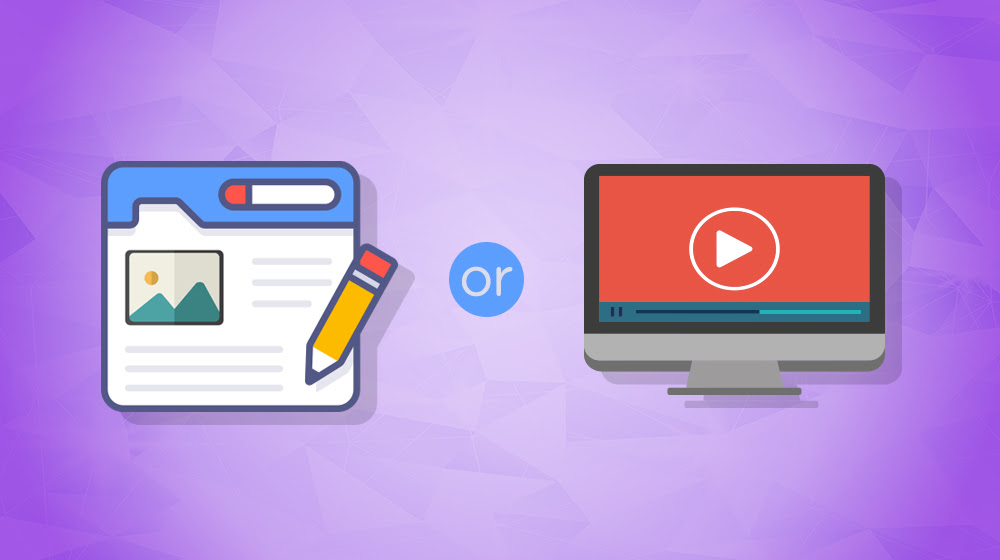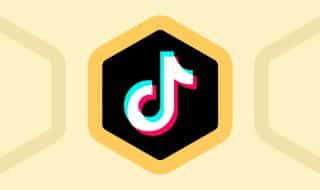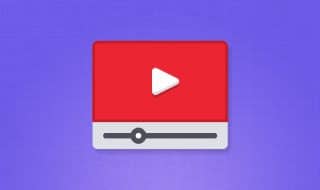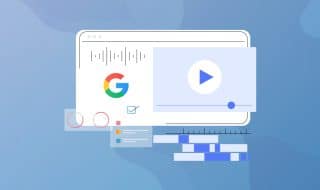Should You Start a Blog or a Vlog? Pros and Cons of Both

People want to leave their mark on the world around them. Some do it through great works of art. Others form human connections to change the lives of those around them. A few become great leaders and shape the course of history.
Most of us? We aren't going to reach those heights. Instead, we find ways to put our message out there on a smaller, more independent scale. We write blogs or create videos, hoping to build an audience and have our voices heard.
And if we make a little money along the way, well, that's just the price of living in our world, right?
If you've decided you want to make your voice heard, but you aren't sure what venue to use, you've come to the right place.
Two of the biggest options are blogging and vlogging. The question is, which should you start? Where should you focus your efforts? Which will reach the people you want to reach with your message?
Now, I'm a business marketer focused more or less exclusively on blogs. But I'm not going to let that bias the analysis I provide below. Vlogging has a lot of good points, but it's just not where I've specialized over the last decade.
Let's look into blogging and vlogging, analyze their pros and cons, and figure out which is the direction you should take today.
Defining Blogs and Vlogs
Before digging in, it's worth taking a look at what blogs and vlogs actually are. While the core offering is obvious, the edges are fuzzy, and there's even a little bit of overlap.
Blogs are websites that are primarily (but not entirely) text-based. The site you're reading right now is a business blog. Blogs are often centered around a homepage where individual posts are shown, and each post is a chance to show up in search engines, get traffic, and share expertise.
Blog posts aren't purely text-based affairs, though. Now and then, you find an old-school blogger who limits themselves to text, but they're the exceptions to the rule. Most blogs are multimedia, with tons of images, possibly videos, audio transcripts, and even interactive elements.

Vlogs are sort of similar, but center around video content. Vlog itself is a portmanteau of "video" and "blog", after all.
The most common venue for a vlog is a YouTube channel. Today, though, you can find people running vlogs on their own websites, or on non-YouTube video sites like TikTok, Vimeo, DailyMotion, or even Twitch, though these all have various stark differences from the standard set by YouTube.
Vlogs don't have text-based content, unless they're publishing transcripts somewhere. They're purely consumed as video, or as audio if the video portion isn't necessary to the experience.
Blogs can have a vlog component, but vlogs very rarely have a blog component. Blogs are generally considered the more overarching of the two formats, so if you have both, people will usually think of the vlog as an offshoot of the blog, even if you treat them the other way around.
Now, assuming you want to stick with just one or the other, let's look at the pros and cons of each.
The Pros and Cons of Blogging
Blogging usually uses your own website and domain name, though it can also piggyback off of another platform like Medium.
The Pros of Blogs
Blogs are separate from other brands and give you more branding control.
Blogging is one of the most independent ways you have to build a brand, name, and reputation online. There will be other companies involved, like your web host, your CMS, and so on, but they aren't advertising on your site or limiting your branding. It's all about you, and everything else you use is largely invisible to your readers.
The text-based nature of blogs gives you greater searchability and user experience.
If you've ever tried to find instructions or a tutorial for something, and the only resource you can find is a video, you know how much of a pain it can be to have to scrub through looking for the right information, listen to and parse it, and extract what you want. Text-based formats like blogs give users a lot more ability to find exactly what they want and experience it at their own pace, not the pace of a video.

Search engines still center primarily on webpages, so blogs get more visibility.
One of the biggest benefits of blogging is how search engines themselves are designed to analyze and index text. They have a much harder time with images and video, and in fact often rely on metadata descriptions or transcripts for both. When you search for something on Google, you might get a few suggested videos, but it's almost all website results, most of which are blog posts.
The barrier to entry for a blog is extremely low.
To set up a blog, all you really need is a domain name and a web host, a CMS, and the ability to write. You can have a domain name for under $20 a year and web hosting for under $15 per month, and the most popular CMS in the world (WordPress) is free. If you can't afford even that, you can still start a free blog on a site like WordPress.com, Medium, Blogger, or another free host and transition later. As long as you can write, you can blog.
Blogs aren't as susceptible to algorithmic surfacing and sinking.
While blogs are definitely vulnerable to the whims of Google's algorithm, it's not as capricious as something like YouTube or TikTok, where the difference between hundreds of thousands of views a day and a few hundred views a day is as arbitrary as the movements of a butterfly through your garden in the morning. The longer a blog runs, the more stable it can be, as well.
The Cons of Blogs
Blogging requires a lot of non-writing skills to manage successfully.
Where a lot of blogs fail is in the assumption that you can just write and publish, and that's all you need. In reality, you need an understanding of keywords and keyword research, a grasp on your target audience and their interests, an understanding of the technical aspects of a website, an awareness of and interest in SEO, and other skills like image creation and more. You can learn all of this over time, but you do, eventually, need to learn it all… or pay someone to handle it for you.
It can be a long, slow journey to growth and sustainability.
Blogging can be fairly fast, but you have to go into it with a lot of knowledge and money to back it. Most people starting their blogging journey will take several years before they reach sustainability, and longer to reach a level of profitability that they feel is "worth it." Many blogs fail every year because the owners expected faster results and couldn't sustain the effort without them.

To be competitive, it takes a lot of work, time, and potentially expensive tools.
The investment necessary to build a good blog is a lot higher than most people expect. While the barrier to entry is low, the barrier to success is high. For me, it's more than a full-time job, and it's easy to end up spending thousands of dollars per month on tools to help you succeed more effectively. Sure, there are tons of free and low-cost tools too, and growth hacking your way up is perfectly viable, but you're always substituting time and effort for the money you save.
Blogs require a lot more ongoing maintenance to remain well-ranked.
The longer you run a blog, the more you'll find that you spend time going back and editing, fixing, or generally updating old content rather than writing new content. Learning to prioritize is a huge skill to develop, and even then, you need to keep old content refreshed to keep it generating value for you. Even the evergreen, "passive value" posts are a lot less passive than marketers would have you believe.
Blog content can be less engaging and bring in less feedback.
Have you ever seen a YouTube video with 1,200 views that has a hundred comments on it? You never get that with blogging. Even my most popular blog posts have fewer than 20 comments, several of which are my own replies. People just don't have the same culture of commenting on blog posts as they do on media like videos, where the social media aspect is played up. That doesn't mean the posts aren't valuable; it just lacks that social validation that can keep you going.
The Pros and Cons of Vlogs
Vlogging, whether you try to host it yourself, run it off of YouTube or TikTok, or run it live on Twitch, is an entirely different ballgame.
The Pros of Vlogs
Video is a more engaging format for a lot of people, especially younger generations.
While older generations might not be as into video on YouTube, TikTok, Instagram, Facebook, or anywhere other than the TV, video is still an undeniably engaging format. Being able to produce compelling video means you can hook a lot of people and get a lot of engagement, build relationships, and generally grow quite quickly. A lot of younger people barely even read blogs but spend hours every day on sites like YouTube and TikTok.

You can use visuals and charisma to be more compelling to users.
Blogs benefit from being largely text, but they can also suffer from it. Videos let you do everything from being a charismatic figure to using animating and kinetic typographic techniques to present information to high-end CGI. The better you're able to use the medium, the more you can hook people through production values alone, no matter what kind of content you produce.
You very rarely need to go back and edit or maintain old videos.
Where a blog requires a lot of maintenance of existing content, videos are very rarely updated. In fact, if an old video needs updating, it can be more valuable to you to produce a new video on the topic. Even if it's largely the same with a correction, having a new video can be more valuable just from ad and algorithm hooks alone. The back-end maintenance burden is a lot lower.
There is potentially less competition for your topics.
Because the barrier to entry for video is relatively high, a lot fewer people are going to be creating content about your topic. Be aware, though, that this applies mostly to higher production YouTube videos, and less so to the casual cell phone video style most used on sites like TikTok.
You can potentially become a public figure.
Some of the upsides of becoming a popular video creator can spiral out from there. A number of now-famous singers and movie stars got their start as YouTubers, and people like MrBeast went from no-name video creators to millionaires and multi-millionaires with reach into other industries entirely. Others have started successful businesses or gotten into politics after growing their reach through video.
The Cons of Vlogs
The barrier to entry for video is a lot higher than with blogging.
Today, you can run a TikTok account with just a cell phone, but you still need public speaking and basic video editing skills, as well as the writing or improv skills necessary to make compelling videos. Meanwhile, high-end YouTube vlogs require much better cameras, video editing software and skills, audio equipment, and more. A lot of "independent" video creators are backed by invisible teams of people, all of whom get paid.
Video doesn't index as well and gets less space in the search results.
In order to index a video, there needs to be a transcript, and while automatic transcripts are better every year, they're still not always consistent. Moreover, Google's search results don't give much room to video unless you use the specific video search, which not everyone will. It might not be a lot worse, but even those small barriers are still friction between a user and your content.

Video is almost always reliant on a third-party platform.
The internet is packed with stories of people on every platform (YouTube, TikTok, Instagram, whatever) who are banned out of nowhere for no reason, and face the impossible challenge of wading through automatic systems to get an account reinstated. Often, it doesn't happen. Add to that the problems with copyright strike systems and their abuse, and you have a recipe for a Sword of Damocles hanging over your channel at all times. You don't get that with a blog.
You're heavily reliant on your voice and appearance.
Being an audiovisual medium, being successful on video means more than just being able to write; you have to be able to voice your content, act natural or unnatural as the situation calls for it, and be engaging. These are trainable skills, but a lot of people don't think about improving in those areas, which is why YouTube is littered with millions of zero-view channels.
Not every topic is really suitable for video.
The hard truth is that some topics are not very engaging in video, or don't benefit from video, or are so complex that the potential audience is minuscule. While having success as a niche video producer can still be rewarding, it's not going to catapult you to the heights of stardom like more general content would. You might end up torn between your passion and the mainstream, and either choice can feel bad.
Can You Use Both?
Of course!
If you start out as a blogger, you can hone your writing chops and start building an audience. Then, you can take your popular content and create video versions about the topic, tailored to the more visual medium and audience.

Conversely, if you start out as a vlogger, you can create a website that starts out publishing transcripts and embedding videos, and spins off from there. More than a few video channels have branched out into this more independent medium.
The downside, of course, is the added workload. It's already a lot of work using one of these channels, so adding another can be unsustainable unless you start building (and paying) a team to do it. You also aren't necessarily guaranteed double (or more) rewards from it, and a lot depends on how well you can monetize either platform.
Should You Start a Blog or Vlog?
I say, either one. I'm obviously biased towards blogging because that's where my expertise is, but all it takes is a look at the world around me to know video is just as effective.

So, a lot comes down to where your own talents, interests, and skills lie. Do you have a natural public speaking voice and a talent for showmanship? Go with video! Do you shy away from cameras but thrive with the written word? Start a blog! And remember, you can always find tools or people to pay to shore up your weaknesses.










Comments